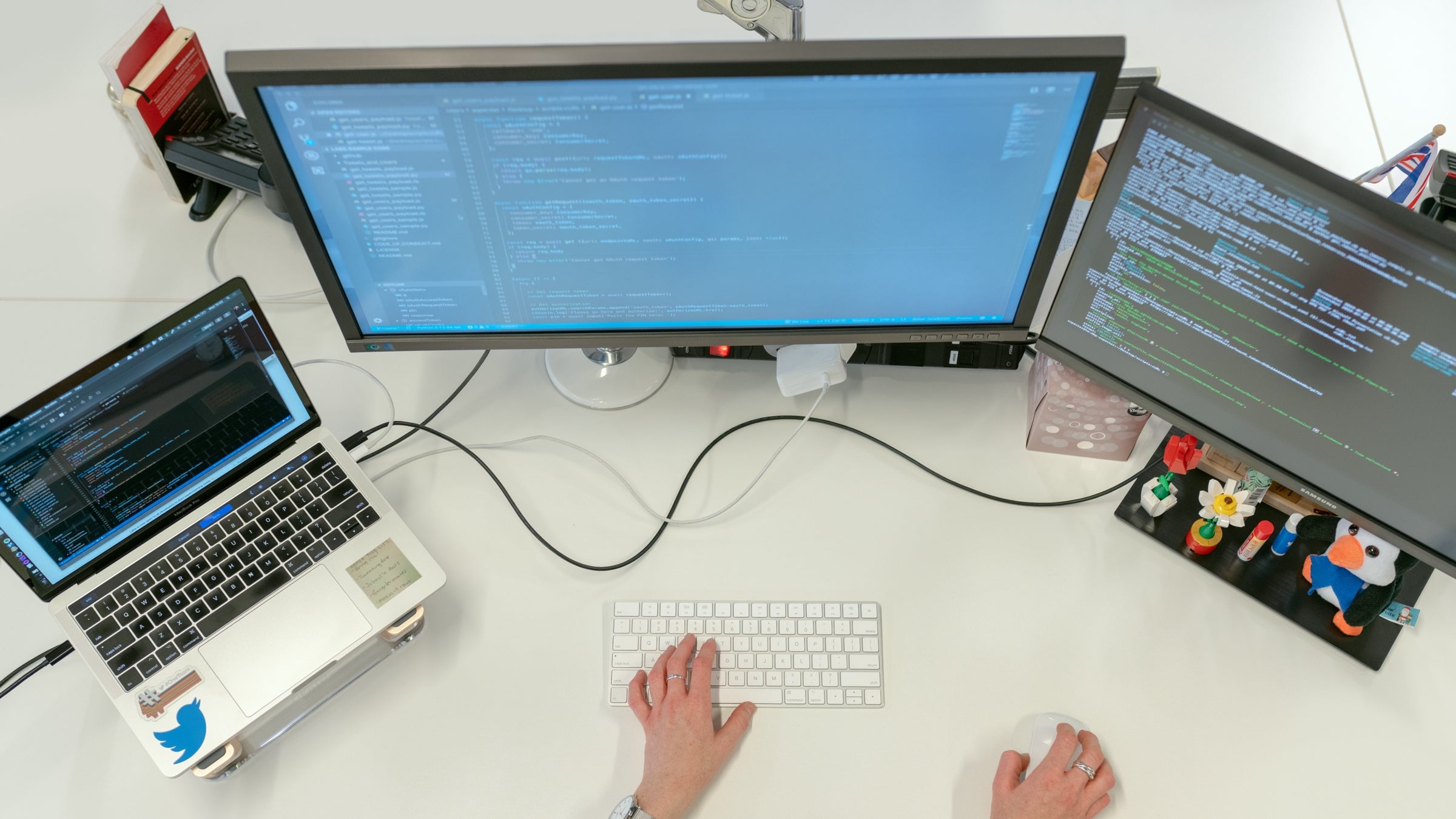Discovering the Perfect Software Development Partner for Innovative Solutions
Wiki Article
Devoted Developers vs. In-House Teams: Which Is Right for You?
The decision between using committed developers and keeping an in-house group is a substantial one that can affect the trajectory of your jobs and general organization strategy. Conversely, in-house teams add to a cohesive company culture and a nuanced understanding of long-lasting goals.Recognizing Committed Developers
The growing need for specialized abilities in the technology industry has actually led to the introduction of committed programmers as a viable service for numerous companies. These professionals are normally acquired on a job basis, permitting business to utilize specific experience without the lasting commitment connected with full time hires. Devoted programmers are usually embedded within a client's team, offering adaptability and scalability to fulfill task needs.This design enables organizations to access a worldwide talent swimming pool, which is specifically useful in a swiftly progressing technological landscape. Committed developers can be sourced from different geographical places, guaranteeing that companies can locate the ideal capability at affordable rates. They typically bring a wealth of experience and expertise, having serviced diverse jobs throughout different markets.
Additionally, dedicated designers can focus specifically on the jobs available, boosting efficiency and efficiency. They are geared up to integrate flawlessly right into existing process, collaborating very closely with internal teams to attain project purposes. This strategy not only reduces the worry of employment and training however also enables companies to stay nimble, adjusting swiftly to altering market demands and technological advancements.
Advantages of In-House Teams

In addition, in-house groups tend to have a deeper understanding of the business's goal, values, and goals. This alignment can improve employee engagement and inspiration, as team participants really feel much more linked to their work and the organization's success. In addition, having a dedicated internal team enables far better alignment of strategies and purposes, as these participants are regularly concentrated on the company's concerns.
Internal groups also assist in quicker decision-making procedures, as they can react much more quickly to adjustments and challenges. The recognized connections and experience with firm protocols enable streamlined process and decreased miscommunication. Eventually, the mix of a natural culture, placement with organizational goals, and effective communication makes in-house teams a useful possession for many organizations, especially those looking to grow lasting development and technology.
Price Considerations
When examining expense factors to consider, both specialized programmers and internal teams existing distinctive monetary ramifications for organizations. Engaging dedicated developers normally involves a pay-per-project or hourly rate version, which can be cost-efficient for organizations with varying task demands. This method permits versatility in scaling sources up or down, guaranteeing that firms only spend for the services they need.On the other hand, internal groups require taken care of costs, including wages, benefits, and overhead expenses such as office and tools. While this design supplies better control and immediate accessibility of sources, it might result in higher long-lasting click this site expenditures, specifically if the work does not justify a permanent personnel.
Additionally, business ought to think about the concealed expenses associated with employment and training of internal employees, which can better stress budgets. In some cases, the time and resources invested in taking care of an in-house team can diminish the company's core organization purposes.

Task Administration and Versatility
Job monitoring and adaptability are crucial aspects that influence the choice in between internal groups and dedicated developers. Dedicated groups commonly have actually established processes for taking care of tasks efficiently, leveraging specific techniques pop over to this site like Agile or shopify stores for sale Scrum, which assist in repetitive progression and adaptability.
Eventually, the choice in between committed developers and in-house teams rests on the desired level of flexibility and the particular project management demands. Firms have to evaluate their functional characteristics, project complexity, and source accessibility to establish which choice straightens ideal with their calculated objectives.
Making the Right Selection
Selecting the best growth approach-- internal groups or devoted programmers-- needs a careful analysis of different elements that line up with a company's tactical objectives. Conversely, in-house groups can supply far better continuity and integration with existing personnel.Following, evaluate your spending plan. Dedicated programmers frequently offer an affordable option for short-term jobs, while in-house teams may sustain greater long-lasting costs because of salaries, advantages, and overhead costs. Evaluate the level of control and partnership desired; in-house teams usually cultivate more powerful communication and placement with firm culture.
In addition, take into consideration the time frame. If instant outcomes are necessary, dedicated programmers can be onboarded rapidly, whereas constructing an in-house team takes time for recruitment and training. Finally, weigh the long-lasting vision of your company. Investing in an in-house group might yield far better returns over time if continual growth is vital. Ultimately, the choice depends upon a complete evaluation of these elements, ensuring positioning with your company's general purposes and functional requirements.
Verdict
Finally, the choice in between in-house teams and committed designers pivots on project requirements and business purposes. Dedicated programmers give versatility and specialized proficiency, making them ideal for temporary initiatives. On the other hand, internal groups cultivate a natural society and deeper positioning with long-lasting goals. Mindful evaluation of spending plan restrictions, task timelines, and desired control degrees is essential for figuring out one of the most ideal method, making sure positioning with strategic priorities and operational efficiency.The decision in between making use of committed developers and preserving an internal team is a substantial one that can affect the trajectory of your projects and general organization strategy.Task monitoring and flexibility are essential aspects that influence the choice between dedicated developers and in-house groups. dedicated development team.In contrast, internal groups might succeed in keeping a consistent project management framework due to their knowledge with the organization's culture and long-term goals. Devoted developers usually offer a cost-efficient remedy for temporary projects, while in-house teams might incur greater long-lasting expenses due to salaries, advantages, and overhead expenses.In verdict, the choice between internal groups and devoted designers hinges on job requirements and organizational objectives
Report this wiki page